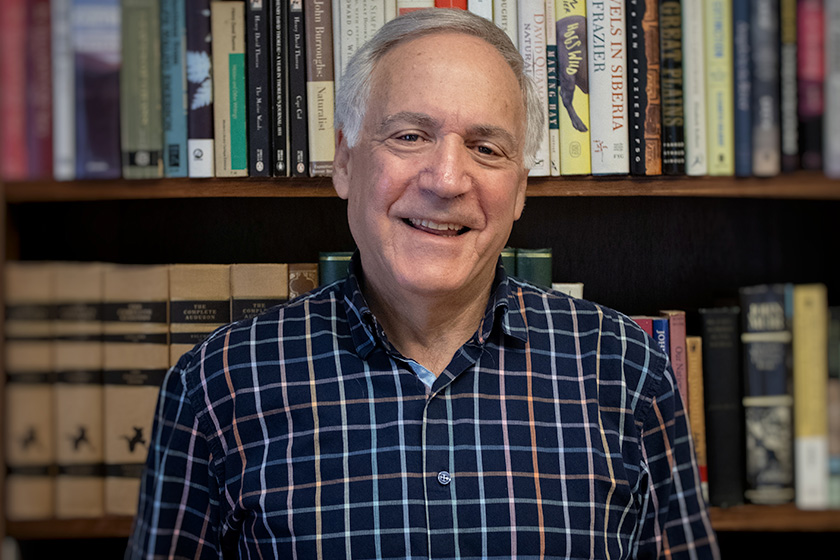
By Ariel Kim ’25
As the founding editor of Yale Environment 360, Roger Cohn is on the front lines of covering one of the most consequential storylines in human history: our rapidly changing climate.
In 2007, Cohn, the former editor of Mother Jones magazine, came to New Haven to launch a new journalism project at Yale School of the Environment. The mission of Yale E360, as the online magazine has come to be known, was to provide in-depth reporting, commentary, and analysis on global environmental issues to a broad, non-academic audience.
The magazine was the brainchild of Gus Speth, then the Dean at Yale School of the Environment, who saw the value in creating a platform for environmental journalism that could reach beyond the confines of academia. At the time, mainstream news organizations were largely scaling back environmental coverage due to budget cuts—creating a void for reliable, independent journalism about the accelerating climate crisis.
“The word pioneering is used frequently, maybe too frequently, to describe an individual’s contributions to a particular field, but in Roger’s case I think it is appropriate,” says Indy Burke, the Carl W. Knobloch, Jr. Dean at Yale School of the Environment. “For the past 16 years, E360 has provided millions of people around the world with in-depth, objective news about climate change, biodiversity loss, the clean energy transition, and other urgent global and local challenges, filling a critical gap in environmental journalism.”

Under Cohn’s leadership, E360 has grown into a prominent and respected publication in the environmental sphere, attracting over 5 million views a year and cited frequently in Nature, the BBC, The New York Times, and other publications. E360’s success is underpinned by its commitment to journalistic independence; more than 90 percent of the magazine’s funding comes from foundation grants and individual donations from readers, enabling it to pursue stories without external influence.
“Roger has built Yale E360 into a global force in the world of environmental journalism and sustainability,” says Fen Montaigne, a longtime senior editor at the magazine who worked alongside Cohn for 14 years.
With a staff of just three editors—plus a stable of freelance correspondents and student fact-checkers—the magazine has produced impactful journalism that has resonated globally. Stories such as a three-part series on grassroots environmentalists facing deadly consequences for their activism and an exclusive report that led to the halt of a controversial water project in South Sudan exemplify E360’s role in highlighting critical environmental stories that might otherwise be silenced.
Cohn emphasizes the importance of journalism in making complex issues accessible and understandable to the public. By bridging the gap between scientific research and public awareness, Cohn believes that storytelling can drive focus and action on environmental issues, demonstrating the indispensable role of journalism in addressing global challenges.
“Telling a story—explaining things in a way that is accessible to the general reader—I think that’s the key to getting people focused on the issue of climate change,” says Cohn. “It’s very rewarding when you feel that something we’ve done really had an impact and I think a lot of our articles have had an impact.”
Each month, Yale Sustainability features a ‘Sustainability Champion of the Month’—a student, staff, or faculty member who is working to advance sustainability on campus and beyond. If you know a sustainability champion at Yale, email sustainability@yale.edu and tell us about them.